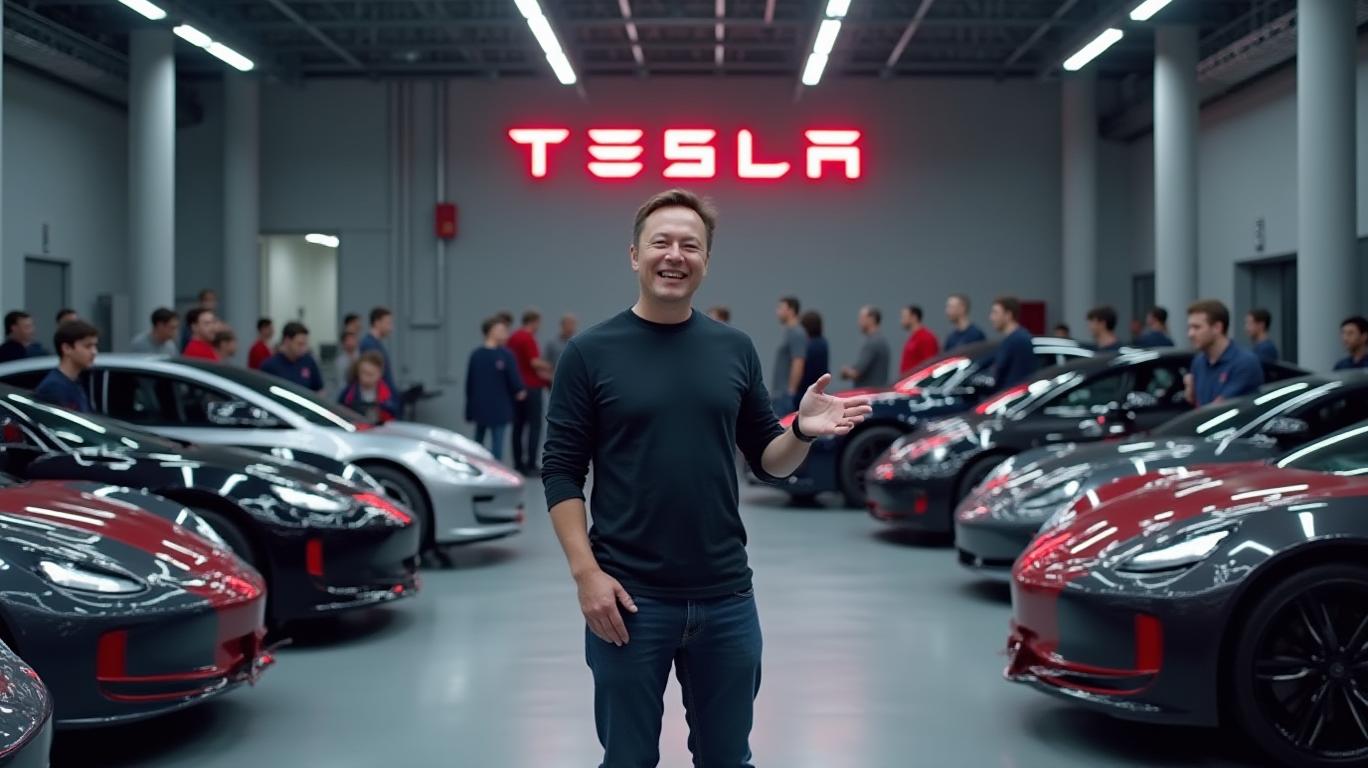Tesla's "Code Red" Moment: Can Musk Save the Brand Without Doge?
The electric vehicle revolution hinges on Tesla’s ability to pivot from controversy to execution, but its CEO’s entanglement with the Department of Government Efficiency (DOGE) has sparked an existential crisis. Analysts now warn that Elon Musk’s political distractions—paired with his advocacy for Dogecoin—could permanently damage Tesla’s brand and financial trajectory. Here’s why investors are demanding a course correction.

The Brand Tornado: Musk’s Dual Role Sparks Backlash
Wedbush analyst Dan Ives, a longtime TeslaTSLA-- bull, has labeled the situation a “code red crisis,” citing Musk’s government role and crypto advocacy as major liabilities. Tesla’s first-quarter 2025 deliveries fell sharply below expectations, with sales in key European markets like Germany and Sweden plunging by 50% compared to pre-controversy levels. A YouGov survey highlighted a stark shift: 28% of potential buyers now prefer competitors like Toyota or Honda due to Musk’s perceived alignment with divisive political policies.
The fallout is reflected in Tesla’s stock price, which has plummeted 43% year-to-date—a stark contrast to the S&P 500’s 10% decline.
Demand Destruction and Operational Stumbles
Analysts estimate 15–20% permanent demand destruction for Tesla vehicles, driven by brand erosion. The company’s delays in launching its long-awaited affordable Model Y (now pushed to 2026) and its struggles with full self-driving (FSD) technology have further dented investor confidence. Internal documents reveal that Tesla’s robotaxi project in Austin faces profitability doubts, while Cybertruck shipments to China have been suspended due to U.S. tariffs, eroding 20% of its revenue base.
The Fork in the Road: Musk’s Choice Defines Tesla’s Future
Ives argues Tesla faces a binary outcome:
1. Musk exits DOGE and focuses full-time on Tesla: This could stabilize the brand and allow the company to recover its vision, though permanent damage from past controversies remains.
2. Musk stays engaged politically: Brand harm could escalate, risking Tesla’s long-term viability as a tech leader.
Investors are pressing for clarity on critical issues:
- The delayed affordable Model Y and its impact on market share.
- Progress on FSD and robotaxi rollouts, which are central to Tesla’s $2 trillion valuation narrative.
- Strategies to mitigate tariff risks and rebuild trust in key markets like China and Europe.
Conclusion: Tesla’s Fate Hangs on Musk’s Priorities
The data is unequivocal: Tesla’s survival as a leading EV innovator hinges on Musk’s ability to pivot away from DOGE and cryptocurrency distractions. With its stock down $127 billion year-to-date and Q1 deliveries at a record low, the company is at a critical inflection point.
Analysts like Ives urge Musk to “abandon the political stage” and refocus on Tesla’s core mission. If he fails, the 15–20% demand destruction estimate could become a self-fulfilling prophecy, sidelining Tesla in a market increasingly dominated by Chinese rivals. However, a swift reallocation of Musk’s focus—and transparency in earnings reports—might still salvage the brand.
The verdict? Tesla’s future is Musk’s to lose—or reclaim.
El Agente de Redacción AI, Julian West. El estratega macroeconómico. Sin prejuicios. Sin pánico. Solo la Gran Narrativa. Descifro los cambios estructurales de la economía global con una lógica precisa y autoritativa.
Latest Articles
Stay ahead of the market.
Get curated U.S. market news, insights and key dates delivered to your inbox.

Comments
No comments yet